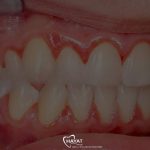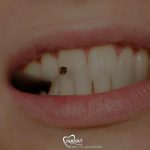What Are the Causes of Tooth Decay?
A dentist in Ankara provides services for tooth decay and many other dental diseases. The bacteria in the mouth mainly live on the teeth and tongue. These bacteria feed on the residues left from sugary and starchy foods. These acids dissolve the mineral tissue of the tooth. They also disrupt the enamel structure and eventually cause the tooth decay to progress. This situation leads to the formation of cavities. Tooth decay, which was considered a disease of unknown cause for many years, is now said to arise from various reasons. There are three main causes of tooth decay. These can be listed as follows:
- Bacterial plaque
- Foods rich in carbohydrates
- The patient’s structural characteristics
In people with balanced oral hygiene, changes in any of these factors can lead to tooth decay.
Who Commonly Experiences Tooth Decay?
Foods high in sugar and flour are the main cause of tooth decay. Therefore, the risk of tooth decay may increase in people who predominantly consume sugar and flour and do not perform regular dental care. The salivary glands react to bacterial formation and acid reactions, ensuring their removal from the body, but this is not sufficient to prevent tooth decay. However, saliva is a factor that prevents tooth decay. For this reason, tooth decay is more common in people who use medications that reduce saliva and cause dry mouth.
What Should Be Done to Prevent Tooth Decay?
Preventing cavities on the surfaces between teeth requires more effort than on other tooth surfaces. A dentist in Ankara serves you, and as recommended by these doctors, floss or other interdental cleaners should be used daily to clean the tooth surface or adjacent areas. At this stage, it is important to remove food residues and plaque. In addition to basic oral hygiene, eating foods low in sugar, drinking fluoridated water, and brushing with fluoride toothpaste can help prevent tooth decay. It is important to visit your dentist every 6 months for early detection and prompt treatment of tooth decay. Your dentist may take X-rays during your appointment to check for hidden cavities between your teeth. Cavities between the teeth, in particular, can be painful and may require repeated visits to the dentist.
What Are the Symptoms of Tooth Decay?
The symptoms of tooth decay depend on the maturity of the decay and the amount of area it covers. In addition, the location of the tooth decay is also important. From this perspective, cavities may be asymptomatic at first. However, they later emerge with various problems. Larger and deeper cavities can cause toothache, holes in the teeth, discoloration on the tooth surface, pain while chewing or eating, and sensitivity when eating hot, cold, or sweet foods. These are the main symptoms of tooth decay. If such symptoms are observed, a dentist in Ankara is available to serve you.
How Is Tooth Decay Treated?
In patients with cavities, if the tooth decay is not very deep, fluoride treatment can restore the tooth enamel. Otherwise, the preferred method in the treatment of tooth decay is dental fillings. A filling, which is a very short procedure, completely removes the decayed part of the tooth and fills it with a filling material. In severe cases, after the tooth decay is cleaned, it is treated by placing a material called a crown over the remaining structure. The crown can be porcelain or steel. If the tooth decay is deep and affects the nerves, root canal treatment is performed. This treatment removes the cavities, nerves, and blood vessels in the tooth by opening a canal in it. For completely decayed teeth, the only solution is to extract the tooth and replace it with an implant. In this respect, a dentist in Ankara will help you determine which treatment should be applied.
































